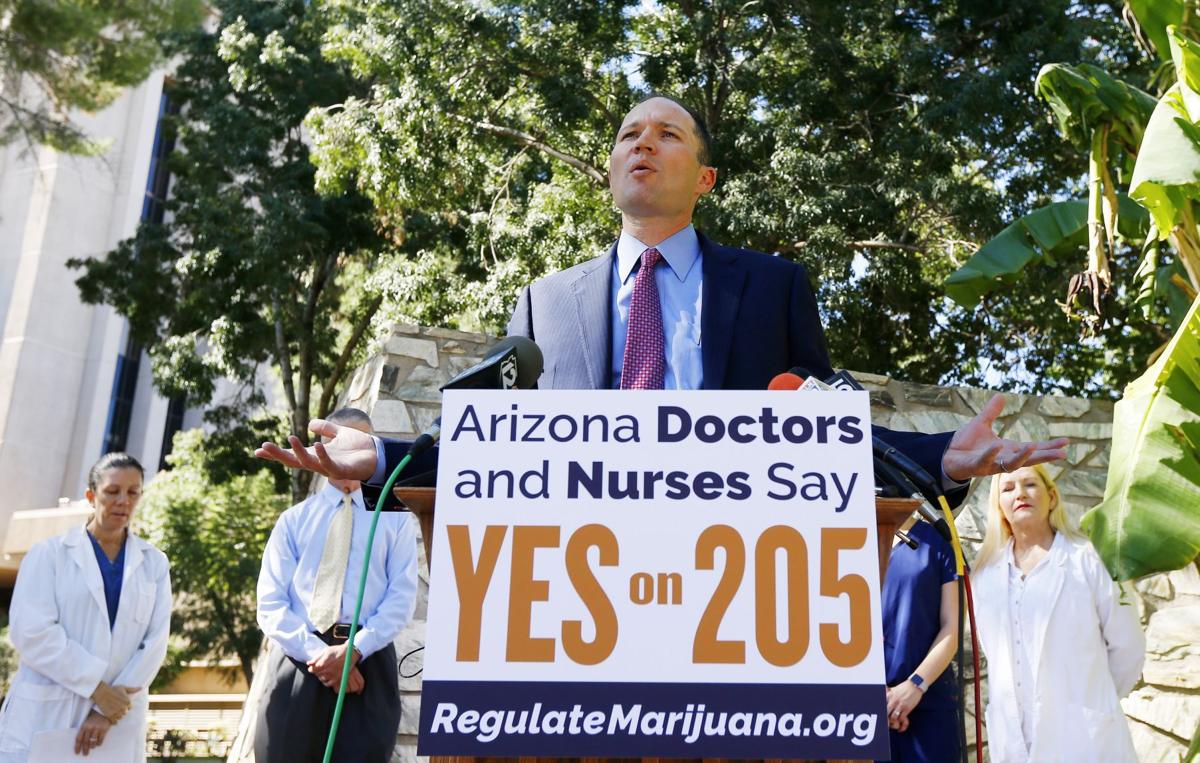PHOENIX — Backers of recreational use of marijuana finally conceded Tuesday what has been generally known for a week: Arizona voters didn’t like their proposal.
While some ballots are still being tabulated, the most recent figures from the secretary of state show Proposition 205 trailing by more than 83,000 votes out of nearly 2.45 million ballots cast on the matter. That is pretty much the same margin of difference since the first returns came in the night of Nov. 8.
But it took until Tuesday for J.P. Holyoak to acknowledge that, at least for the time being, the only Arizonans who are going to be able to use the drug legally under state law are those who have a medical need for it.
The only thing left to be decided is when to try again — and what changes to make to assure a different outcome.
“It is too soon to provide any specific details,” Holyoak said in a prepared statement. “But we intend to continue fighting in support of sensible marijuana policy reform.”
Voters in Arizona were the only ones to reject expanding laws about who can smoke, inhale, eat or drink the drug without worrying about state or local police.
California, Maine, Massachusetts and Nevada joined Colorado, Alaska, Oregon and Washington where adults are free to purchase and use the drug. Voters in several other states approved marijuana for medical use with plans similar to what Arizona enacted at the ballot in 2010.
Holyoak did not respond to multiple requests placed with the campaign’s publicist to answer specific questions about the loss and what happens now.
But officials from the Marijuana Policy Project, which provided the main source of financing for the Arizona campaign, previously said this is not the end of the efforts in Arizona. The main thing to be decided is whether to try again in two years, when all statewide offices are up for grabs, or in the next presidential election in 2020.
For the moment, the only legal users of marijuana are the more than 108,000 individuals who have a doctor’s recommendation that they have a medical condition that would benefit by the use of the drug. That, however, cannot be any problem at all but is limited to specified conditions ranging from glaucoma to nausea from chemotherapy and post-traumatic stress syndrome.
There is, however, a broad catch-all classification of “chronic pain.” More than 80 percent of patient qualify under this category.
The statewide initiatives that passed around the country last week were only part of the victory for advocates of recreational use of marijuana.
By a narrow margin it appears that Denver voters agreed to allow the public use of the drug in certain businesses. That includes consuming “edibles” and “vaping” indoors; smoking actually has to occur outdoors, albeit out of public view.
The Marijuana Policy Project released a statement from Kayvan S.T. Khalatbari, who owns a Denver medical and recreational dispensary and a pizza chain, who cheered the approval
“This is a victory for cannabis consumers who, like alcohol consumers, simply want the option to enjoy cannabis in social settings,” the statement read.





